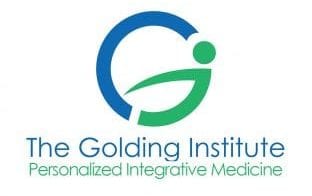Numerous studies show that the bio-identical hormones: estradiol, progesterone, DHEA and testosterone, not only help in the management of menopausal symptoms, PCOS, bone density, fibroids and sexual function, but are also antiaging because they reduce the morbidity and mortality scores of age-related chronic diseases eg. dementia, heart and blood vessel disease, cancers, diabetes, metabolic syndrome, and auto-immune and inflammatory diseases.
The module on bioidentical HRT will be looking at the advantages of bioidentical HRT over their synthetic counterparts. Large trials like the Women’s Health Initiative (WHI) trial have proved that non-exact replica of human hormones may indeed be harmful in the long term. In addition to this bio-identical hormones have been present in the human body for more than 50 million years, so we know that maintenance of health requires bio-identical hormones.
Hormones can cause side effects, and they each have typical signs and symptoms. Therefore accurate replenishment with laboratory testing is of importance. The different laboratory testings available from blood, to urine metabolites to saliva testing to check tissue levels need to be understood and implemented into practice.
The term “bioidentical” is used because the administered hormones, although chemically synthesised, are identical to the endogenous hormones of the human body. Estradiol, progesterone, estriol (another natural estrogen) and testosterone are the most common.
Further, in a recently published paper “The Bioidentical Hormone Debate: Are Bioidentical Hormones and Progesterone) Safer or More Efficacious than Commonly Used Synthetic Versions in Hormone Replacement Therapy” by Dr Kent Holtorf, (Postgraduate Medicine, Volume 121, Issue 1, January 2009, ISN – 0032-5481, e-ISN – 1941-9260 available at http://www.holtorfmed.com/nss-folder/pdf/BHRT-PGM-2009.pdf) documents the debate and reaches the following conclusion, ”a thorough review of the medical literature supports the claim that bio-identical hormones have some distinctly different, often opposite, physiological effects to those of their synthetic counterparts. With respect to the risk for breast cancer, heart disease, heart attack, and stroke, substantial scientific and medical evidence demonstrates that bio-identical hormones are safer and more efficacious forms of HRT than commonly used synthetic versions. More randomized control trials of substantial size and length will be needed to further delineate these differences.”
Module learning objectives:
- Understand the differences between bioidentical and non-bioidentical hormones
- Understand the concepts in diagnosing and treating adrenal stress
- Understand the approach to thyroid disease states
- Understand the different lab testing for hormones
- Get protocols for cycling, compounding, endometriosis and PCOS
- Get a better understanding of the management of andropause and menopause.
The module’s reading material will cover:
- Adrenal fatigue, lifestyle and diet
- Bioidentical hormones
- Bioidentical hormones and endometriosis
- Bioidentical hormones and PCOS
- Bioidentical hormones and PMS
- Bioidentical hormones – reasons why they are safer than non-bioidentical hormones
- Blood test ratios
- Cycling of hormones – a new paradigm for BHRT
- Estrogen dominance
- Functional BHRT
- Hormone pathways
- HRT – an anti-ageing physician’s perspective
- Hypothyroidism
- Structures and half-lives of hormones
- The advancements in HRT required
- The case for testosterone
- The safety of bioidentical hormones
- Thyroid hormones
